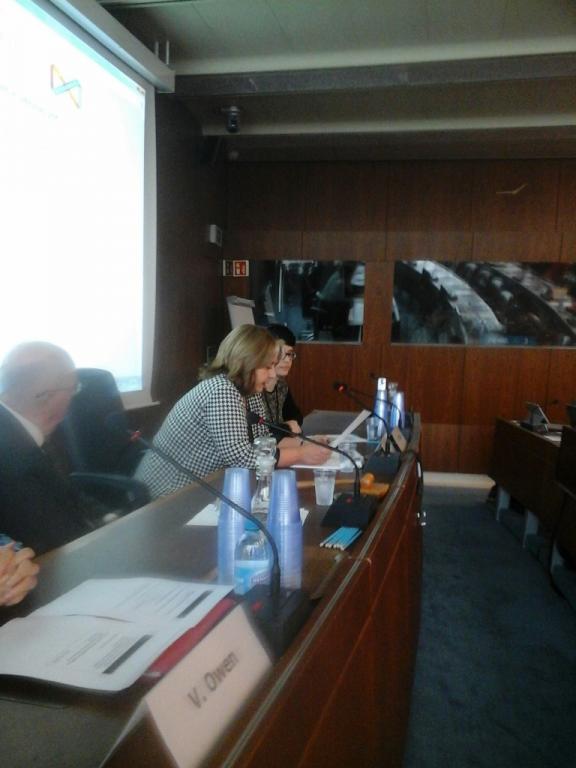Libraries and Archives Are Embracing Digital: It’s Time the Law Did the Same
07 June 2016

Digital technologies offer rich opportunities to collect, preserve and make the world’s knowledge available. But to make the most of these collections, libraries and archives need the right laws.
At an debate at the World Intellectual Property Organisation (WIPO), under the chairmanship of IFLA head of delegation Winston Tabb, libraries and archives representatives from three continents set out how the digital format is affecting their work. The librarians and archivists underlined the challenges they face from anachronistic laws, often the fruit of lobbying by established interests.
Libraries Can Be 'Drivers of Change' if We Let Them
Alicia Ocaso from the Uruguayan Library Association opened. She emphasised the potential for libraries to be ‘drivers of change’ in a continent where rich potential co-exists with daunting social and economic challenges.
Libraries had been early adopters of digital technologies, and longed to give their users access to the world’s knowledge, which, in turn, could drive both personal and national development in line with the UN Sustainable Development Goals. Yet in many Latin American and Caribbean countries, the laws required to give libraries and archives the space to do their jobs do not exist. WIPO’s Standing Committee on Copyright and Related Rights (SCCR) had it in its power to rectify this situation.
For Archives, Neither Current Laws nor Licences are Fit for Purpose
Victoria Stobo offered the archivist’s perspective. When an archive wants to give the public access to a work that is outside of the public domain (i.e. its copyright hasn’t expired, or in some cases, it was never published), they need to work out whether there is a contactable ‘owner’ who has the right to say what can be done with it. If this isn’t the case, the work can be declared ‘orphan’.
The 2014 fire at the Glasgow School of Art underscored the importance of using digital technology to preserve and take copies. However, the current rules do not appear to recognise this reality. Many institutions cannot dedicate the resources necessary under rules today to establish whether there is a contactable rights-holder. In this case, they will often just give up. Meanwhile, licencing was no solution when there wasn’t a rights-holder there to licence the work. Indeed, in the cases where ‘owners’ of works had been discovered, almost all of them were very happy to see them made accessible to the public, and had no interest in receiving money for this.
Canadian Libraries Quicker than Rightsholders to Accept and Embrace Digital
The third speaker, Victoria Owen, described the Canadian experience, using facts, data, and analysis, where libraries serving schools and universities are not only spending a rapidly increasing share of their budgets on digital resources, but also looking to do more with what they already have. Unsurprisingly, print publishing has declined in favour of electronic materials.
Rather than look at the full complexity of the publishing environment today, some rightsholder organizations have sought to blame this evolution on the 2012 modernization of the Canadian legislation which extended ‘fair dealing’ provisions to education. However, the evidence for this is scant and dubious, as many of the arguments proffered have no citations or back-up.
Rather, Victoria argued, the new provisions have offered greater clarity for librarians, and benefit students and faculty alike. Victoria used statistics and data from academic libraries in Canada to demonstrate how libraries are effectively balancing the public interest, a foundational concept of copyright. On the one hand, Canadian libraries are utilizing licenced digital content to its fullest extent, and on the other hand, conducting a fair dealing analysis where materials are not licensed, and purchasing a transactional license when required.
IFLA is grateful to Alicia, Victoria and Victoria for their contributions, which allowed decision-makers to get an insight into what it is like for librarians and archivists on the ground to try and realise the potential of digital with outdated copyright tools.
For more information, contact [email protected].